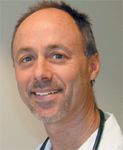Research Update: Pneumogastrography: An alternative for diagnosing gastric diseases
Pneumogastrography (negative contrast gastrography) involves placing air through orogastric intubation or carbonated beverages orally into the stomachs of awake or sedated dogs.
Pneumogastrography (negative contrast gastrography) involves placing air through orogastric intubation or carbonated beverages orally into the stomachs of awake or sedated dogs. In this clinical report from a veterinary teaching hospital, the diagnoses in six dogs with gastric disorders such as a foreign body or neoplasia were easily established, and the dogs were surgically or endoscopically treated. Minimal complications were noted, and the technique was fast, inexpensive, and simple-to-perform. Pneumogastrography provided excellent detail of luminal and gastric wall lesions. The authors recommended an air volume of about 20 ml/kg or a carbonated fluid volume of about 60 ml. Left lateral and ventrodorsal radiographic views were the most helpful views in revealing the pyloric outflow obstruction.
Bowlus RA, Biller DS, Armbrust LJ, et al. Clinical utility of pneumogastrography in dogs. J Am Anim Hosp Assoc 2005;41:171-178.
COMMENTARY
Pneumogastrography appears to be a safe and useful procedure for diagnosing foreign body or neoplastic lesions of the stomach in variously sized dogs. Clinicians lacking ultrasonography or endoscopy equipment could use this simple technique to identify poorly visualized lesions or lesions not observed with survey radiography. The authors stated that they have also performed pneumogastrography in cats with gastric disease. Although it is not used or discussed frequently in veterinary medicine, pneumogastrography was originally described 30 years ago in an Australian veterinary journal.1
REFERENCE
1. Grandage J. The radiological appearance of stomach gas in the dog. Aust Vet J 1974;50:529-532.
The information in "Research Updates" was provided by Veterinary Medicine Editorial Advisory Board member Joseph Harari, MS, DVM, DACVS, Veterinary Surgical Specialists, 21 E. Mission Ave., Spokane, WA 99202.

Joseph Harari, MS, DVM, DACVS